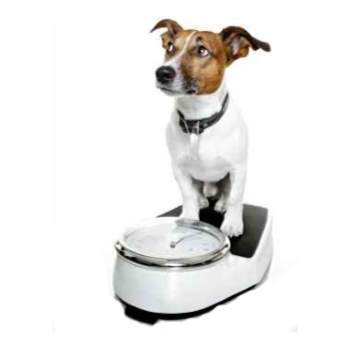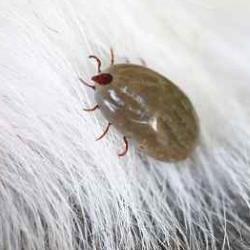- Small Dog Place Home
- Health
Small Dog Health: Your Ultimate Guide To Keeping Your Dog Healthy
by Janice Jones
Not all small dog health problems afflict all tiny dogs. But anyone considering a small dog should be aware of some of the more common problems that appear frequently in tiny dogs.
The good news is that so many problems faced by the average pet owner can be avoided through excellent care, an optimal environment, and good nutrition.
Still, there are some small dog breeds that seem to be healthier than others.
Small Dog Health Prevention
 Small Dog Health Resources
Small Dog Health ResourcesTo keep your dog in tip top shape requires one to consider all the ways they can prevent problems from occurring. All dogs should enjoy a life filled with health, energy and vitality.
As a pet parent, there are many ways you can help your dog stay healthy. The bonus for you? Reduced trips to the vet and large outlays of money to treat potentially preventable problems.
Focus on Health and Wellness and Not on Disease
- Dogs Throwing Up Undigested Food
- Human Medicines You Can Use on Your Dog
- Foods Toxic to Dogs
- Plants Toxic to Dogs
- How to Choose a Veterinarian
- Dogs and Sleep: How Much Sleep Does Your Dog Need?
Small Dog Health and Wellness Across the Lifespan
Senior Dogs
- How to Guide Your Senior Dog into Aging with Ease
- How to Care for Your Senior Dog
- Senior Dog Health Tips
Holistic and Alternative Health Resources
Supplements
CBD Oil for Dogs in Pain: All the Facts You Need to Know
CBD as an Antioxidant for Small Dogs: What you Need to Know
10 Ways to Boost Your Dog's Immunity
Alternative Therapies
Stem Cell Therapy with Small Dogs: How it Can Help
Prevent Problems From Ever Occurring
Sun Protection for You and Your Small Dog
You can prevent many problems from occurring by protection your small dog from the heat and sun while staying healthy yourself.
Heartworm Disease & Preventative
Heartworm Disease is a serious and possibly fatal condition caused by a parasite called by its scientific name, Dirofilaria immitis. It gets its name because these parasites take up residence in the chambers of the heart and surrounding blood vessels.
Adult worms resemble long thin strains of spaghetti often upwards of 12 inches long and lodge in the lungs and heart, where they begin to reproduce.
Obesity
Do you have an overweight dog? Perhaps you'd like to ignore the situation, but if your Small breed dog is overweight, you are cheating him out of the chance to live the best possible life.
Overweight Small breed dogs are at increased risk of developing painful conditions like osteoarthritis and life-threatening ones like respiratory, cardiovascular disease, Type 2 diabetes, high blood pressure and many forms of cancer.
Signs Your Dog Has a Sleep Disorder
Similar to humans, sleep is imperative for a dog’s overall health and wellbeing. Depending on the breed, your four-legged friend should get between 12 and 14 hours of sleep per day. This includes the time they sleep both at night and during the day.
Do you suspect that your dog isn’t sleeping enough or may be suffering from a sleep disorder? Knowing the warning signs of sleep disorders in dogs and the different types can help you make a quick diagnosis and get them the treatment they need.
Dog Ticks: Should You Be Concerned?
They look like insects, but Ticks are real arachnids, the same family as spiders and scorpions, meaning they have 8 legs instead of the normal 6 legs found in insects.
They do damage to their host by attaching themselves, sucking blood and transmitting disease. The main issue with dog ticks is not the skin problems they cause, but the disease they can transmit. They can causes severe problems not only for your dog but for you too.
Puppy and Adult Vaccination Guide
There is little agreement even among veterinarians as to what is best for each dog when it comes to vaccinating. What is worse, many people have heard horror stories about vaccine reactions in people.
With such controversy, wouldn’t it just be easier not to vaccinate at all? Some think so, but but before you make a decision, read this article.
Worms in Dogs: Are You at Risk For Catching Your Dog's Worms?
Discussing those Common Worms in Dogs and single celled organisms that live in dogs does not make for polite dinner conversation.
However, if left unchecked, these little creatures can make your dog and even you very ill and could be potentially deadly.
There are several very common worms seen in dogs. Learn about each, the symptoms in your dog and how to treat them.
Fleas in Winter: Protect Your Dog From These Pesky Parasites
Although fleas and ticks are most active during the warmer months (starting in March in some states in the U.S.), the American Kennel Club warns that they are a threat to pets all year round. Find out how you can manage these external parasites year-round.
Read about Fleas in Winter
How to Cope with Seasonal Allergies
Spring is in the air, which means that allergy season is already in full swing across many parts of the USA.
While it is no secret that countless Americans are affected by seasonal allergies, we don't always realize to what extent our beloved canine companions can also be affected by the changing seasons.
Read how to cope with Seasonal Allergies
This article is accurate and true to the best of the author’s knowledge. No advice on this website is meant to substitute for a diagnosis, treatment or advice from a veterinarian. Dogs showing symptoms of distress or illness should be seen by a veterinarian immediately.
About Janice (author and voice behind this site)
Having lived with dogs and cats most of her life, Janice served as a veterinary technician for ten years in Maryland and twelve years as a Shih Tzu dog breeder in Ohio.
Her education includes undergraduate degrees in Psychology with a minor in biology, Early Childhood Education, and Nursing, and a master's in Mental Health Counseling.
She is a lifelong learner, a dog lover, and passionate about the welfare of animals. Her favorite breed for over 50 years has been the Shih Tzu, but she has also lived with Poodles, Maltese, Yorkshire Terriers, Beagles, English Bulldogs, Carin Terriers, and a Cocker Spaniel.
When not writing, reading, and researching dog-related topics, she likes to spend time with her eight Shih Tzu dogs, husband, and family, as well as knitting and crocheting. She is also the voice behind Miracle Shih Tzu and Smart-Knit-Crocheting
Does This Article Deserve Your Thumbs Up?
We always appreciate your support and encouragement. Your thumbs up means so much to us. Please like this article.
If you find this page or any page on Small Dog Place Helpful, or useful in anyway, I'd love it if you would click the small heart found on the bottom right of each page.
You can also share or bookmark this page -- just click on the:

Free Monthly Newsletter
Sign Up for Our Free Newsletter and get our Free Gift to You.
my E-book, The Top 10 Mistakes People Make When Choosing a Dog (and how to avoid them)












